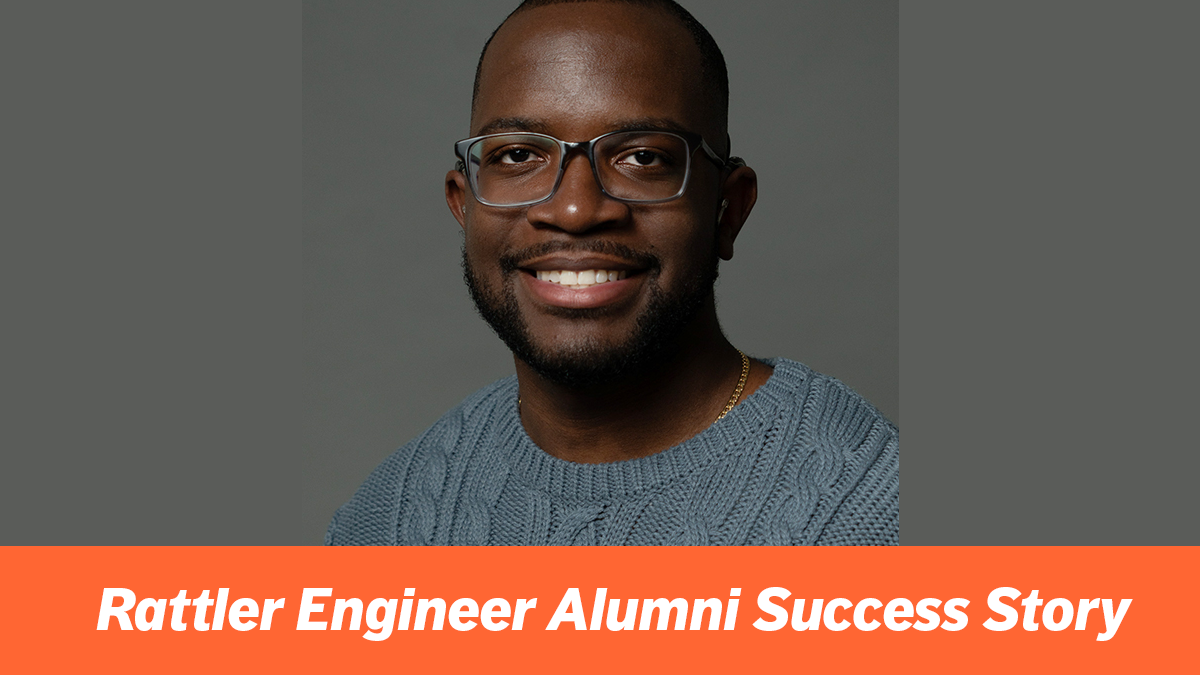
Austin Williams is an alumnus of FAMU and the joint college, a current graduate student at Carnegie Mellon University and a serial inventor and entrepreneur. (Courtesy Austin Williams)
From Joint College to Doctoral Research: Austin Williams Tackles Medical Device Challenges and Food Waste
Austin Williams is a proud second-generation graduate of Florida A&M University. In 2023, he earned his bachelor’s degree in industrial and manufacturing engineering with the distinction of Magna Cum Laude at the joint FAMU-FSU College of Engineering. Now, as a doctoral student at Carnegie Mellon University, he is making strides in materials science that promise to impact lives globally.

Pioneering Waterproof Cochlear Implant Technology
Deeply immersed in cutting-edge biomedical engineering research, Williams studies hydrogel and organogel soft materials. His goal: develop the world’s first waterproof behind-the-ear (BTE) cochlear implant.
“My research involves working on innovative solutions that can enhance the lives of individuals with hearing impairments,” Williams said. “Most implants have a lower waterproof rating than your average smartphone. Like smartphones, they contain microphones and antennas, so I began asking why these life-changing devices shouldn’t be just as water-resistant.”
This thought-provoking question drives his research, which aims to enhance the functionality and durability of cochlear implants, ultimately improving the lives of many. In simple terms, he says, “I’m working to create a soft ‘raincoat’ and cushion for the implant, so it lasts longer, functions better and feels more natural inside the body.”
Combating Global Food Waste With AI
Williams is the founder and CEO of SilkyAI, a forward-thinking mobile application that utilizes artificial intelligence to combat global food waste.
“One day, after bringing groceries into my kitchen, I realized I already had plenty of food in my fridge and pantry,” Williams said. “I didn’t want anything to go to waste and couldn’t find a quick recipe online that used ONLY the ingredients I had on hand. That moment sparked an idea for a simple, accessible system that could generate recipes based solely on what’s already in your kitchen—without requiring extra, hard-to-find seasonings or ingredients.”
Williams teamed up with software engineers to design a prototype for SilkyAI. The application is in the early phases of customer discovery and fundraising.
“Using AI along with affordable sensing technology, we aim to predict spoilage and provide creative recipes based on the ingredients you already have,” he explains. This innovative dual approach encourages individuals to cook smarter and directly addresses food waste at its core.
Building a Foundation at the Joint College
“My time at the FAMU-FSU College of Engineering was transformative, providing me with a solid academic foundation, invaluable research experience, internships and scholarships that prepared me for graduate school and beyond,” Williams shared.
As a research assistant in the department, Williams worked with Tarik Dickens, a professor in industrial and manufacturing engineering, and he recalls his time in the program with great fondness.
“The IME program had many highlights. I especially valued the Senior Design I and II courses, as well as the manufacturing processes and materials engineering courses, which deepened my technical skills and reinforced my passion for engineering,” he stated.
Dickens recalls, “I was very impressed with Austin’s maturity as an undergraduate student in our department. He approached his work as a summer intern and later as a research assistant with a cerebral mindset, demonstrating early on that he was an independent researcher. We are proud that he was the first Honors-in-the-Major recipient in the inaugural year of the FAMU honors thesis program.”
Williams also participated in the college’s Engineering Living-Learning Community (LLC) and the Educating Engineering Students Innovatively (EESI) program.
“The LLC and EESI experiences, led by Professor Charmane Caldwell, provided a supportive environment that made my freshman year more manageable, laying the groundwork for my success, even in the midst of a pandemic.”
Advice for Aspiring Engineers and Entrepreneurs
When asked what advice he would give students, Williams said, “First, get deeply involved in research early so you understand the scientific process. I started researching in my junior year and wish I had spent an extra semester learning more about the different projects and tools in the lab. Second, look for real-world problems your skills can address—that’s where entrepreneurial ideas come from. It’s okay not to know how to start a business; the first skill you’ll need is problem-solving and the second is tenacity to see it through. And third, don’t be afraid to reach out to mentors or apply for fellowships; many doors open simply because you ask. Balancing academics and a startup is challenging, but staying organized and passionate makes it possible.”
National Recognition and Future Vision
Williams’s remarkable journey has not gone unnoticed. In April 2025, he received the National Science Foundation (NSF) Graduate Research Fellowship Program (GRFP) Honorable Mention in recognition of significant scientific and intellectual merit.
The award reflects the education and support he received at the FAMU-FSU College of Engineering, where he was an active member of Theta Tau, a professional engineering fraternity, and the National Society of Black Engineers.
“The NSF GRFP Honorable Mention gave me the confidence to pursue bold ideas and reinforced that my work matters beyond the lab bench,” Williams says.
Looking ahead, Williams envisions himself at the intersection of advanced materials research and commercialization—either stepping into a leadership role within a materials-focused company or launching his own venture.
Editor’s Note: This article was edited with a custom prompt for Claude Sonnet 4, an AI assistant created by Anthropic. The AI optimized the article for SEO discoverability, improved clarity, structure and readability while preserving the original reporting and factual content. All information and viewpoints remain those of the author and publication. This article was edited and fact-checked by college staff before being published. This disclosure is part of our commitment to transparency in our editorial process. Last edited: 09/30/2025.
RELATED ARTICLES
Engineering Alumna Revolutionizes Waste Management with Vision AI Technology
